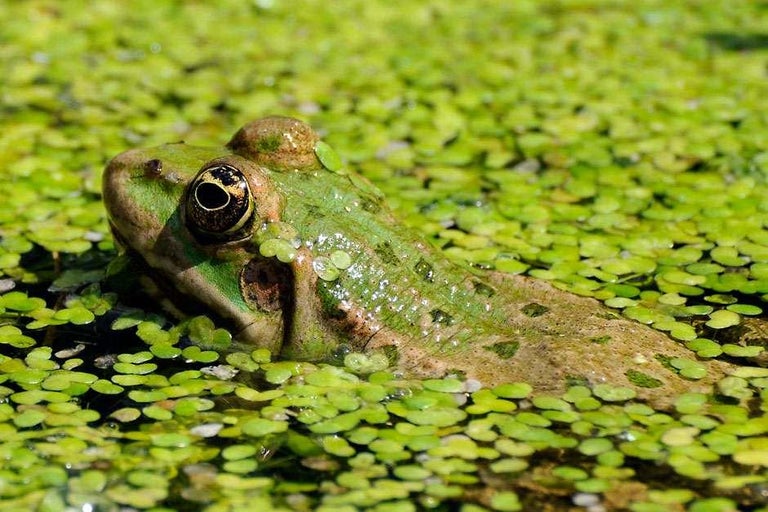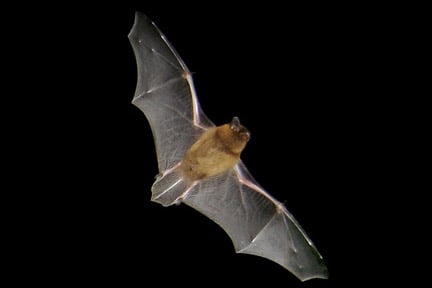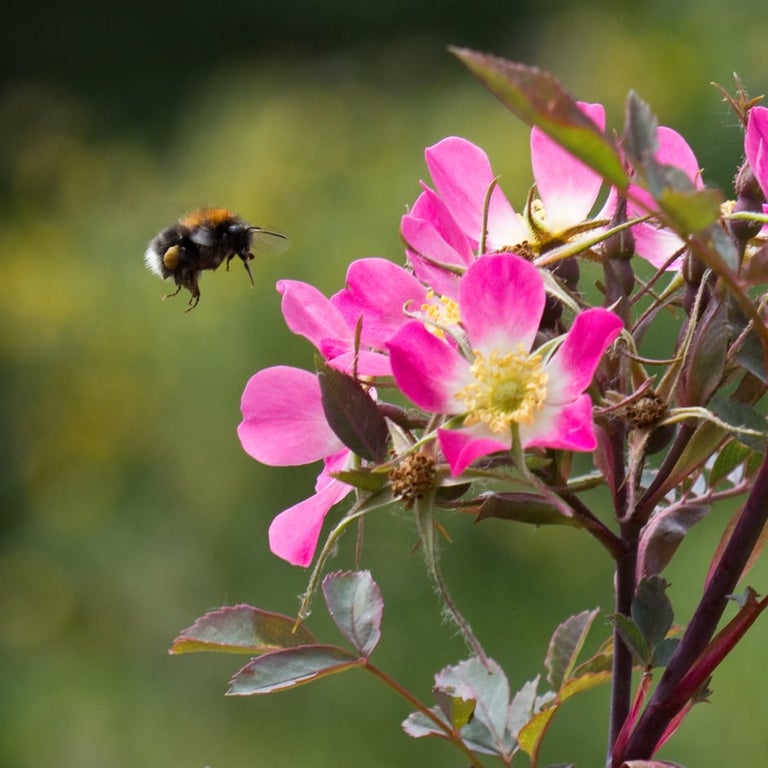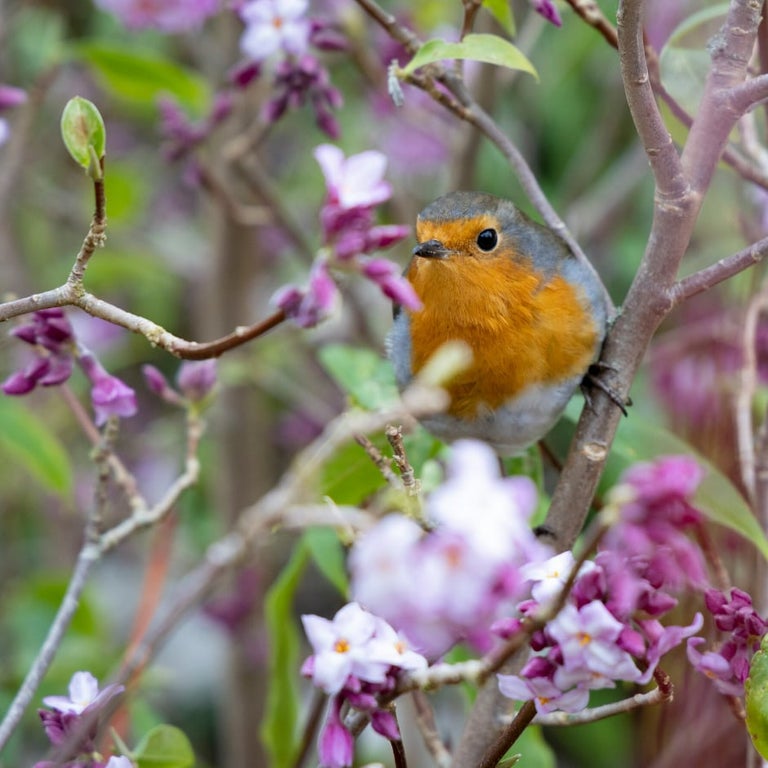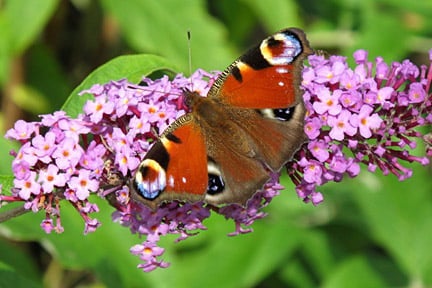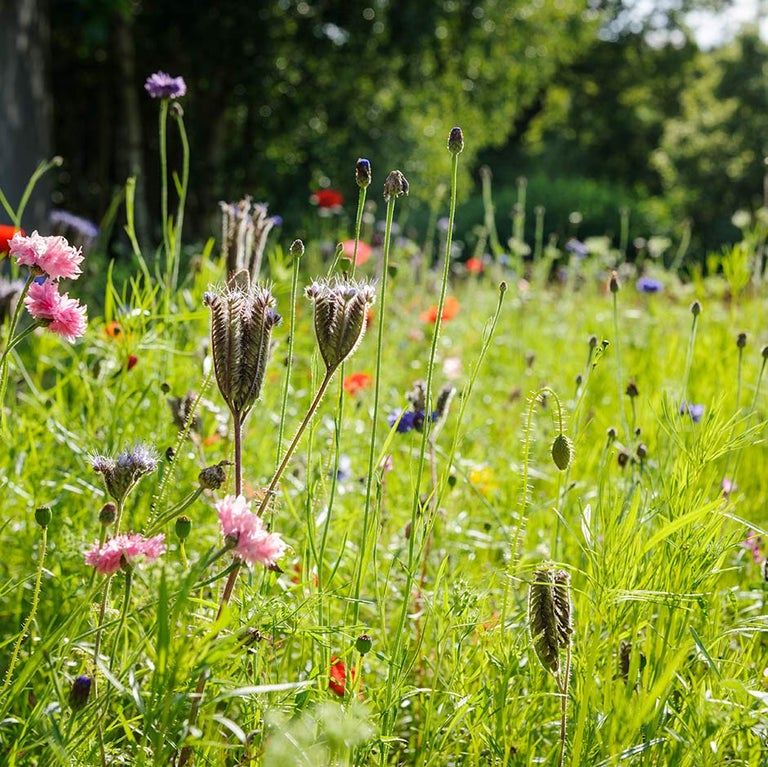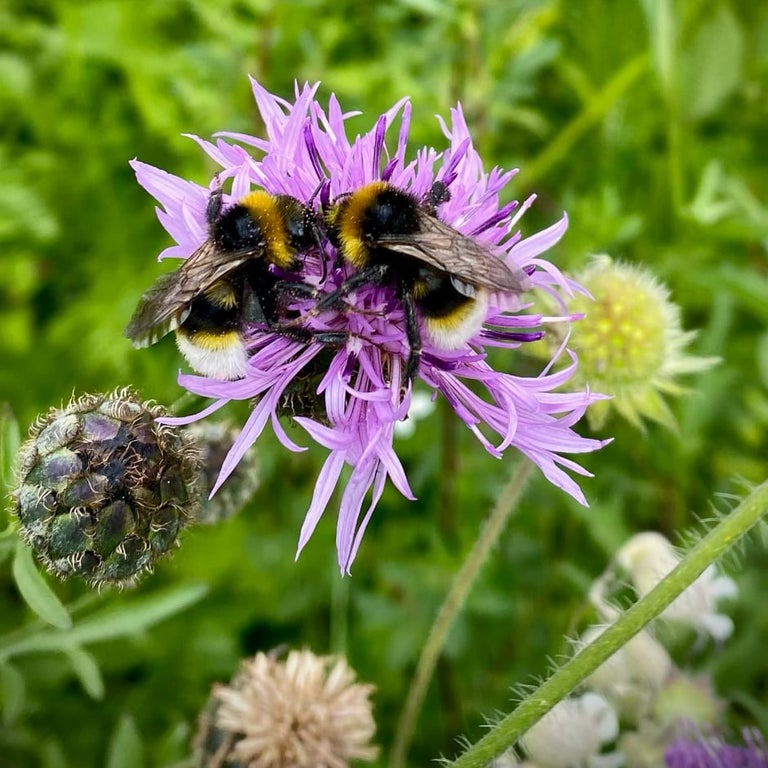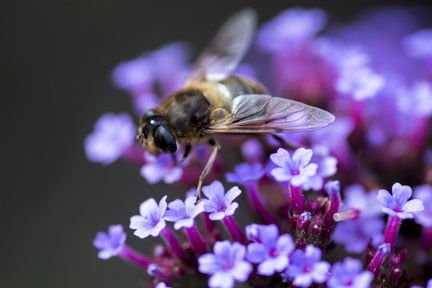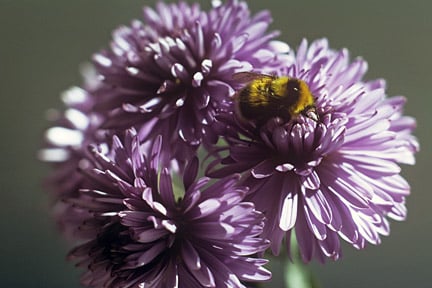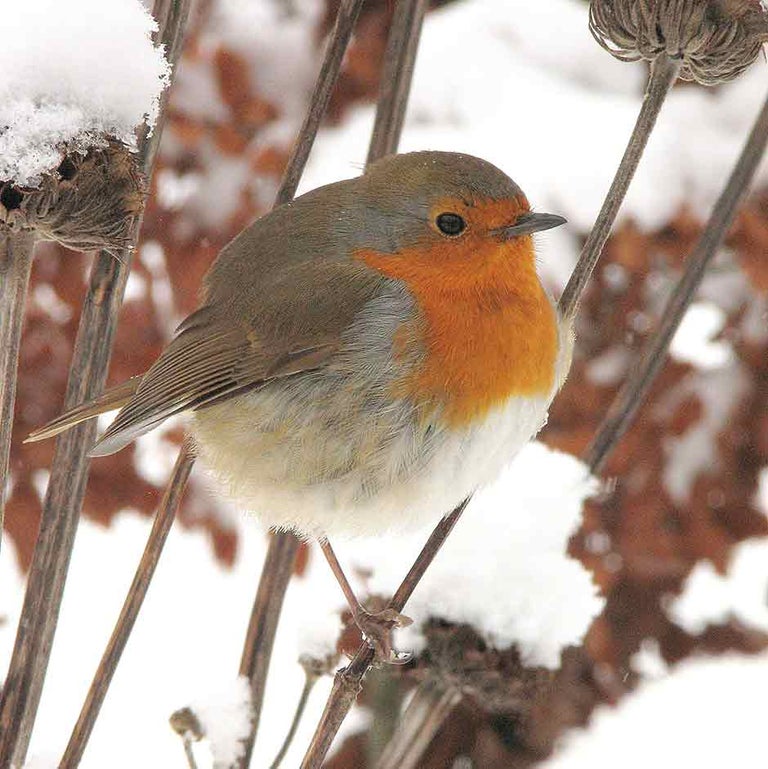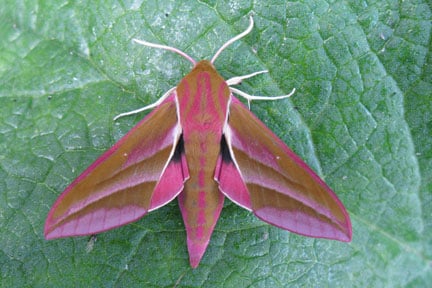
Quick facts
Moths are pollinators as well as food for other invertebrates, birds, amphibians, and mammals
Timings - Late spring to autumn
Identification difficulty - moderate
What moths are in your garden?
The average garden will be home to hundreds of different species of moth. Some are readily recognisable, such as brimstone moth, mother of pearl, flame shoulder, yellow-tail, ruby tiger and blood-vein. For most, a good field guide will be needed to identify them. There is also a wealth of online identification assistance such as at the UK Moths website and the 'What's Flying Tonight' app.
To observe some of the range of moths in your garden, suspend a bright light over a white sheet on a warm night from spring to autumn.
You can also submit records of species you have seen to Butterfly Conservation's Moths Count scheme to contribute to knowledge and conservation of moth species.

Moths in decline
Long term data from the Rothamsted Insect Survey has shown that two thirds of British larger moth species have declined in abundance since the late 1960s, and around 62 species have gone extinct. This data was gathered using a network of light traps throughout Britain, one of which is operated at RHS Garden Wisley.
Declines have also been seen in Northern Europe and may be occurring in rest of the world. It is thought that habitat loss and fragmentation is one of the main drivers of these declines, including changes in farming practices and increasing urbanisation. Moths are considered good indicators of environmental and land-use change, and as such these trends in moth populations add to the concerns over general declines.
How to encourage moths
Many gardens are already good habitats for moths due to the diverse range of plants present. There are a few things you can do to make your garden more welcoming:
For adult moths
- By planting night-flowering, nectar-rich plants, which have specifically evolved to attract nocturnal insects, more moths can be seen in the garden. Lists of plants that can provide for a wide range of pollinators can be found at RHS Plants for Pollinators
- Nicotiana (tobacco plant) and Oenothera (evening primroses) are ideal. Summer-flowering jasmines, honeysuckles, Erica cinerea, Silene latifolia and sweet rocket are all valuable nectar plants for moths
- Day-flying moths, such as the silver-Y moth and the impressive hummingbird hawk moth, can be attracted with sea lavender, buddleias, Centranthus rubra and Lychnis
For caterpillars
- Tolerate some damage to your garden plants, as most caterpillars will only be present in low numbers, so their feeding will not impact the health and vigour of the plants
- Some caterpillars such as the angle shades and large yellow underwing are polyphagous (feed on a wide range of plants) so there are likely to already be plants they will eat in your garden
- Provide for more moth caterpillars by planting as diversely as you can, especially shrubs, trees, grasses, wildflowers and other herbaceous plants. Of the latter, bedstraws (Galium spp), clovers (Trifolium spp), docks (Rumex), heathers, nettles and plantains support a wide range of species
- Leave longer grasses, thistles and knapweeds in wilder parts of the garden; these are food plants for many moths
- Native trees and hedging plants, such as oak, birch, willows, hawthorn and hornbeam, support many moth caterpillars
- Elephant Hawk-moth caterpillars, which turn into large and colourful moths, enjoy rose bay willowherb, clarkia and fuchsia. The caterpillars of the beautifully named Merveille du Jour feed on oak early in the year. Our previously common but now sadly declining Garden Tiger moth has caterpillars which feed on a range of plants including nettle, docks and Hounds-tongue (Cynoglossum officinale)
Place in the food chain
- Most adult moths are active at night, making them a key food source for bats, web-building spiders and other nocturnal predators. Owls and small mammals take moths, as do many common garden birds if they discover them during the day
- Moth caterpillars are less mobile and easier for predators to catch than adults. Blue tits, great tits, robins and many other birds, need a regular supply of caterpillars and other insects to raise their chicks successfully
- Many species of parasitoid wasps and flies develop inside the bodies of caterpillars, while others attack the pupal/chrysalis or egg stage in the life cycle of moths
- Moth caterpillars are a important source of food for hedgehogs in late summer and autumn
Damage to garden plants
The caterpillars of moths eat the foliage or other parts of plants. In gardens they may be feeding on edible plants, ornamental plants or ‘weeds’. In most cases this is minor damage to leaves and can be tolerated, as it has a very limited effect on plant vigour and appearance. Growing healthy, large or more vigorous plants can minimise this impact and make it more acceptable.
Although the majority of the 2,500 UK moth species do not cause noticeable damage in gardens and should be encouraged, a handful are considered problematic, including; codling moth, holm oak leaf-mining moths, horse chestnut leaf-mining moth, leek moth, pea moth, plum moth, winter moth and tortrix moths. Cabbage caterpillars may be those of moths or, more commonly, butterflies.
If damage is not tolerable then try to use natural enemies to control caterpillars by encouraging predators such as ground beetles and birds in the garden. You can also employ hand picking and biological control methods.
Get involved
Provide The Garden Moth Scheme with records of moths in your area: http://www.gardenmoths.org.uk/.










